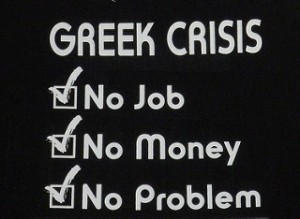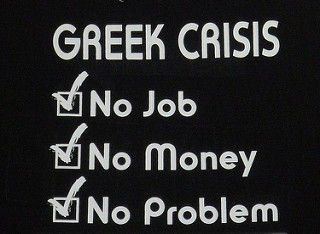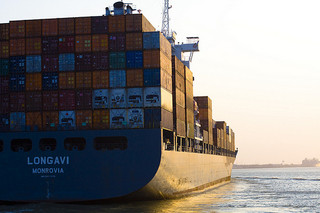Implications of Supply Chain Disruptions in Greece

May, June, and July 2015 were rough months for businesses in Greece due to political unrest. The banking system has been facing collapse, causing myriad problems in manufacturing and distribution. Greek banks were closed between June 29 and July 20 to prevent money from flooding out of the country, but this also prevented businesses from conducting normal operations. Take a look at the implications of these supply chain disruptions.
Distribution Delays in Greece
Greece is a regional transportation hub. The country’s several major airports and ports faced major delays because of the Greek banking crisis. Businesses were not able to buy fuel to keep operations going, which prevented businesses from getting the imports they needed to manufacture goods as well as delaying their own distribution channels. As a result, businesses across the country reported severe delays.
Distribution delays are a serious issue. Not only do businesses lose out on profits during delays, but some also face a loss in capital because they cannot operate as usual. For instance, food en route spoils before it reaches grocery stores. This creates even bigger problems because customers cannot get the food they need to feed their families. Food costs also tend to rise to cover the distribution losses.
Companies Use Risk Mitigation Plans to Avoid Delays
Most companies have risk mitigation plans to prevent serious business losses. However, it’s very hard to plan for a problem as big as an entire country’s banking system collapsing. Insurance coverage can only do so much, and many businesses will not be able to recover from the banking crisis in Greece. The companies best equipped to handle the bank closures are those that operate on an international level that do not rely solely on funds from one country.
Currently, DHL and UPS have not reported any major supply chain disruptions. However, DHL has been taking measures to prevent delays as best as it can. For instance, DHL has asked its drivers to fill up their gas tanks frequently in case of fuel shortages. This is only a short term fix, but it might help DHL keep operations going for a little while. As a DHL spokeswoman stated, the company operates in over 200 countries, so dealing with a variety of market developments is part of the company’s risk mitigation plan.
Long Term Implications of the Greek Banking Crisis
Banks have only recently started to open up again in Greece, and that may not last. Greece is still working on bailout plans and other solutions to the country’s financial problems. Businesses will be in a state of unrest until the banking system is stable again, and most will create plans for other major supply chain disruptions. As Chief Marketing Officer of GT nexus Greg Johnsen indicated, many companies are likely reassessing their relationships with Greek businesses.
Only time will tell what will happen to supply chains in Greece. However, many business owners hope that imports and exports will return to normal and that no more major supply chain disruptions will occur. Of course, it will still take most businesses time to recover from the crisis in Greece.







